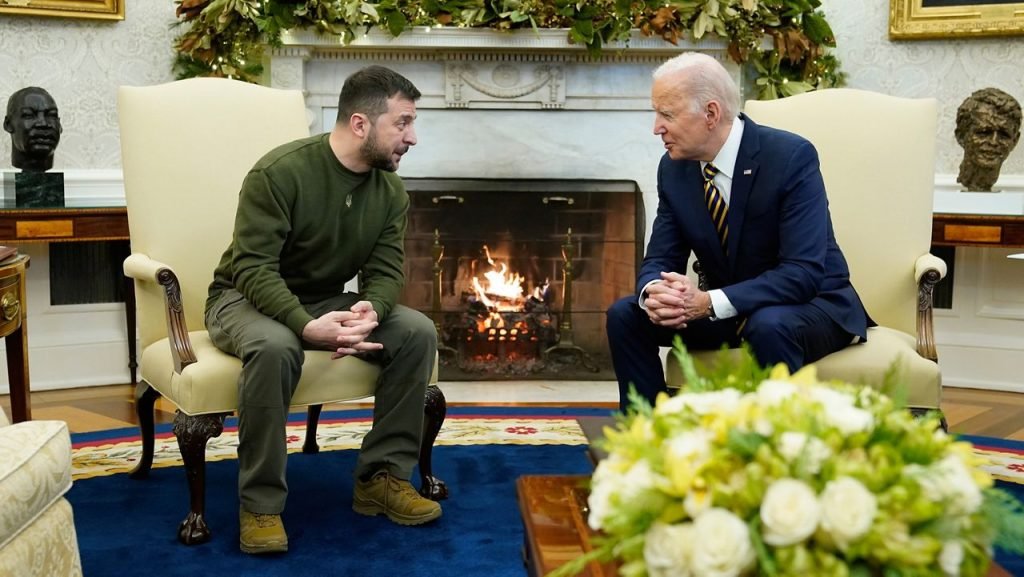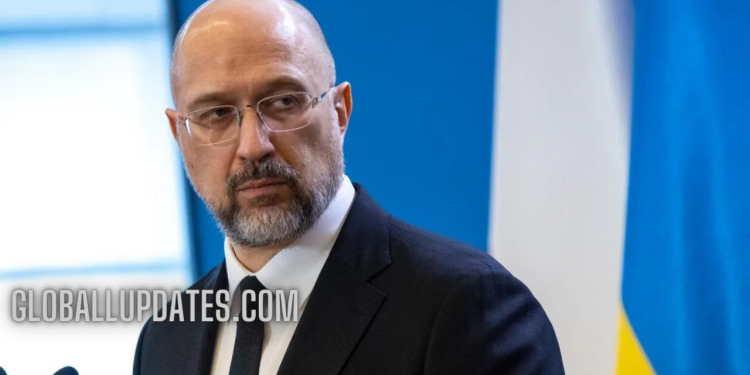Ukraine’s Prime Minister has told the BBC of a looming “Third World War” if Ukraine loses its conflict with Russia, urging the US Congress to pass a crucial foreign aid bill with $61bn earmarked for Kyiv, highlighting a global security threat and the urgent need for action.
The situation in Ukraine is rapidly approaching a critical juncture. As the conflict with Russia escalates, the specter of a broader global conflict looms, prompting Ukraine’s Prime Minister, Denys Shmyhal, to issue a stern warning: without significant international support, notably from the United States, the consequences could be dire, not just for Ukraine but for the entire world. This article delves into the intricacies of this urgent call for help, the ongoing impasse in the US Congress over foreign aid, and the potential global repercussions of Ukraine’s defeat.
Overview of the Ukraine Crisis
The Escalating Conflict: A Brief History
The conflict in Ukraine has its roots deeply embedded in the region’s complex historical and political tapestry. Initially sparked by geopolitical shifts and internal strife, the situation escalated rapidly following Russia’s annexation of Crimea in 2014. This move, deemed illegal by the international community, set the stage for ongoing military engagements along Ukraine’s eastern front. The situation has been further complicated by political alliances and the strategic interests of major global powers, including the United States and NATO countries.
Current Situation: Ukraine’s Struggle for Survival
As of now, Ukraine finds itself grappling not only with an aggressive neighbor but also with internal challenges including political instability and economic strain. Despite receiving significant military aid and financial support from Western allies, the balance of power remains tenuous. The Ukrainian military, though resilient, is stretched thin against a better-equipped Russian force, highlighting the critical need for continued and enhanced international support.
Ukraine’s Prime Minister’s Dire Warning
The BBC Interview: Shmyhal’s Call to Action
In a recent poignant interview with the BBC, Prime Minister Denys Shmyhal articulated a grim outlook. He emphasized that the stakes extend beyond Ukraine’s borders, touching on the fabric of global security. “We need this money yesterday, not tomorrow, not today,” Shmyhal expressed, underscoring the urgency of the US’s financial assistance. His warning is stark: a defeat for Ukraine could cascade into a series of uncontainable global conflicts, potentially culminating in a third world war.
Implications of Ukraine’s Defeat: Global Security at Risk
Shmyhal’s warning articulates a domino effect in global geopolitics. The fall of Ukraine could embolden other aggressive state actors, destabilize NATO’s eastern flank, and lead to a reconfiguration of international alliances and security strategies. Such a scenario would not only jeopardize European security but also challenge the current global security architecture, necessitating a complete strategic overhaul.
- A Major Power Plant Near Kyiv Was Completely Destroyed by Russian Strikes
- UN Warns of “Major Nuclear Accident” After Drone Attack on Zaporizhzhia Plant
The US Response: A Foreign Aid Stalemate
The Role of the US Congress in Ukraine’s Fate
The US Congress is currently at a crossroads, with a significant foreign aid package to Ukraine pending approval. This package, which includes critical funding for military and economic support, has been mired in political debates, reflecting a broader national conversation about America’s role in global conflicts. The outcome of this legislative process is crucial, as it will determine the extent and continuity of US support for Ukraine.
Political Impasse: The Blockage of Aid and Its Consequences
The delay in passing the aid package is attributed to a complex web of political, economic, and ideological factors within the US. Some conservative lawmakers have raised concerns about the magnitude of overseas spending, advocating for a more isolationist approach, while others recognize the strategic necessity of supporting Ukraine as a bulwark against Russian expansionism. The impasse has significant implications, not only delaying essential aid but also sending uncertain signals to international allies and adversaries alike.
Global Implications of the Ukrainian Conflict
NATO’s Role and the Potential Domino Effect
NATO’s collective defense agreement stipulates that an attack on one is an attack on all, a principle that has deterred aggression but is now being tested by the conflict in Ukraine. The alliance’s response to the crisis, both in terms of military support and diplomatic pressure, will be a litmus test for its relevance and cohesion in the face of evolving global threats.
Russia’s Military Strategy and International Relations
Russia’s military actions in Ukraine are part of a broader strategy to reassert its influence on the post-Soviet space and challenge Western dominance in global affairs. This approach has significant implications for international law, state sovereignty, and the norms governing international relations. Understanding Russia’s long-term goals is essential for formulating a coherent Western response that balances deterrence with diplomatic engagement.
The Human Cost: Impact on Civilians and Soldiers
Casualties of War: The Toll on Ukrainian Forces
The human cost of the conflict is staggering, with thousands of Ukrainian soldiers killed and many more wounded. The psychological and physical toll on military personnel and their families is immense, compounded by the uncertainty and fear of a protracted conflict. The resilience of Ukrainian forces, while remarkable, hinges on sustained support and resources, which are currently in jeopardy due to funding delays.
Civilian Suffering and the Humanitarian Crisis
Beyond the battlefield, the war has inflicted severe hardship on Ukrainian civilians. The disruption of daily life, economic hardship, and the trauma of ongoing conflict have led to a humanitarian crisis, with millions displaced both internally and as refugees. The international community’s response to this crisis, while substantial, must be sustained and increased to address the growing needs.

Future Outlook: Scenarios and Predictions
What If Ukraine Falls? Scenarios of a Dark Future
The potential fall of Ukraine could have cascading effects on global stability. Scenarios range from increased Russian aggression in Eastern Europe to a reorientation of global alliances. The strategic, economic, and humanitarian implications of such developments would be profound, requiring a reassessment of global security policies and aid strategies.
Paths to Peace: Possible Diplomatic Resolutions
Despite the grim outlook, there are still pathways to a peaceful resolution. Diplomatic efforts, while challenging, remain crucial. The involvement of international bodies like the United Nations, ongoing negotiations between global powers, and the potential for ceasefire agreements offer some hope for de-escalation. The role of diplomacy in resolving the conflict cannot be underestimated, as it offers the potential to save lives and restore stability.
How the World Reacts: International Perspectives and Support
Global Support for Ukraine: A Review of International Aid
The international response to the crisis in Ukraine has been a complex amalgamation of military aid, economic sanctions against Russia, and humanitarian support for displaced populations. This section will explore the scope and effectiveness of international aid, highlighting the roles of various countries and organizations in supporting Ukraine’s resistance and addressing the humanitarian impact of the conflict.
The Role of Media and Public Opinion in Shaping the Conflict
Public opinion and media coverage play pivotal roles in shaping the narrative and influencing governmental policies related to the conflict. This section will examine how different media outlets have portrayed the Ukraine crisis and the effect of public opinion on political decisions regarding foreign aid and diplomatic efforts.
In conclusion, the situation in Ukraine is a stark reminder of the complexities and dangers of modern geopolitical conflicts. As global powers deliberate on their next moves, the fate of not just Ukraine but potentially the entire global security landscape hangs in the balance. The outcome of this conflict will likely redefine international relations in profound ways, underscoring the interconnectedness and fragility of our global community.














































